Press Reviews
January 2021
International Media Digest
WAITING FOR BIDEN
The post-Trump Western Balkans
The European Council on Foreign Relations published an analysis on how the American approach in the Western Balkans could change under the Biden presidency, which has officially begun on January 20.
The ECFR stressed that the American President “is no stranger to the Balkans”, recalling his regular visits to the region as Senator during the Nineties. He has been “the first U.S. official to have expressed condolences to Serbs for the NATO air strikes that took place in March-June 1999”, the think tank underlines, too. Biden’s Balkan expertise, the ECFR explains, represents an asset for “rebooting joint efforts in the Euro-Atlantic integration of the Balkans” and move beyond “Trump’s instrumentalization of the Balkans”.
Serbia-Kosovo talks
Another ECFR article provides a glimpse on how Biden’s elections could impact the dialogue between Serbia-Kosovo. “As president, Joe Biden could develop a new strategy for the Balkans, but this is probably too much to expect in the first year of his term”. As consequence, “in 2021 the dialogue between Kosovo and Serbia will probably make only limited progress through technical agreements, with lots of waiting and delays”. However, the solution of the long-time does not only depend on Washington and Brussels’s endeavour. “A lack of honest leadership and genuine attempts to prepare the public for a compromise”, both in Belgrade and Kosovo, hinders the process.
ELECTIONS IN KOSOVO: WILL ALBIN KURTI BE BARRED?
Polls indicate Kurti’s party large win
Kosovo will hold snap elections on February 14. The early vote was called by the acting President Vjosa Osmani after a ruling of the Constitutional Court, issued on December 21, which declared illegal the parliamentary vote that in June 2020 greenlighted Avdullah Hoti’s Government. Judges of the supreme court found that Etem Arifi, one of the 61 deputies (out of 120) who backed Hoti, had been sentenced to prison for one year and three months on a fraud charge. According to Kosovo’s Constitution, a final prison sentence to one or more years received in the last three years ends the mandate of a deputy. Since the government would have not been appointed without Arifi’s vote, the court ordered to hold snap elections. Radio Free Europe/Radio Liberty wrapped up the scenario.
Albin Kurti, a nationalist politician advocating a wide and deep fight against corruption and broader social rights for citizens, will have a big chance to take the power back. He won general elections in 2019 and formed a coalition with the Democratic League of Kosovo (LDK), becoming Prime Minister. Yet, the LDK withdrew support to the Prime Minister in March 2020 due to disputes over the management of the coronavirus pandemic and the dialogue with Serbia for improving political relations. The coalition collapsed, paving the way to the appointment of Mr. Avdullah Hoti as Prime Minister, backed by the LDK.
Kurti’s party, Vetevendosje (Self-Determination), is due to score an overwhelming victory. Yet, Mr. Kurti could be barred from running for the parliament. As reported by Euronews, the Central Electoral Commission excluded him due to his sentencing for a crime in the last three years. “Kurti and other lawmakers were sentenced for using tear gas and other violent acts to disrupt Kosovo’s parliamentary proceedings. The unrest had broken out during votes on a border demarcation deal with Montenegro and an association for the ethnic Serb-dominated areas in Kosovo”, the EU-sponsored network recaps. Mr. Kurti will appeal the electoral authorities’ decision.
Vjosa Osmani’s choice
According to recent polls Self-Determination could win 40% of the votes, massively increasing the result achieved in 2019 (26%), the Italian press agency Ansa stressed. Key to Vetevendosje’s electoral likeability is the choice made by the acting President, Vjosa Osmani, to join Kurti’s party electoral list. She was the frontrunner of the LDK at 2019 elections, and was elected Speaker of the Parliament after the vote. As Kurti, she pledged to fight corruption and dismantle the deep state during the campaign. After the LDK triggered the no confidence vote that toppled Kurti in June 2020, she broke ties with the party and founded her own movement, the Vjosa Osmani Initiative, now allied with Self-Determination.
Osmani, as the second high-ranked official in the country, became acting President after that Hashim Thaci resigned in November to fight charges of war crimes before the Kosovo Specialist Chamber. Based in The Hague, it is an international body tasked with investigating alleged war crime committed by the Kosovo Liberation Army (KLA), the guerrilla that fought Serbia in 1998-1999. Thaci was its political leader.
Osmani and Kurti recently signed a cooperation agreement to stress goals like wider access to health services, innovation and digitalization, stronger environment protection, transparency and competence, instead of political affiliation, as criteria to distribute office in the administrative field.
TURKEY INCREASES PRESSURE ON ALBANIA AND KOSOVO
Valerie Hopkins, the Financial Times correspondent for Southeastern Europe, wrote a detailed article about a recent series of extraditions of Turkish citizens from Albania, Kosovo and Moldova. All of them are accused by the Turkish regime of having strong ties with Fetullah Gülen, the Islamic preacher who in Ankara’s view masterminded the 2015 failed coup. Differently from other countries pressed by Ankara to handover members of the Gülen movement, Albania, Kosovo and Moldova made little resistance, Hopkins told in her article, implying the increasing dependence on Ankara’s financial and humanitarian support as a reason.
Turkey’s assertive moves in the region are a great concern for Greece, whose relations with Ankara, historically complicated, have been exacerbated by a recent gas dispute in the Mediterranean basin. The Greek Foreign Minister Nikos Dendias has recently sounded the alarm on Ankara’s ambitions in the Western Balkans, for whose stability Athens is fully committed, as the dialogue with North Macedonia shows. “Non-European forces aspiring to revive empires that belong to the past” are trying to exploit the fragile stability of the region to increase their influence, Dendias said during a meeting with the North Macedonian counterpart, clearly referring to Turkey, maybe also to Russia, Ekathimerini reported.
Further News and Views
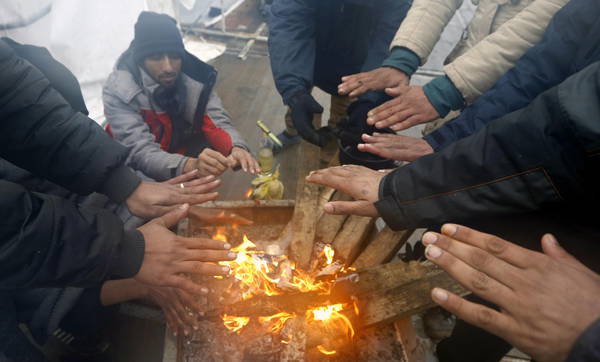
REFUGEE CRISIS IN BOSNIA AND HERZEGOVINA DEEPENS
Inadequate housing, lack of hot water and hostile weather worsen migrant’s conditions in the Balkan country.
Ansa, January 19
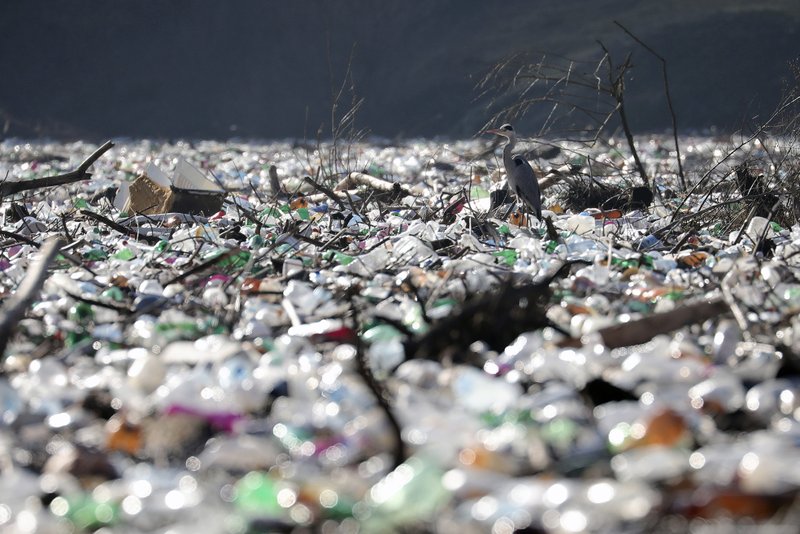
PLASTIC KILLS RIVER DRINA
Huge islands of plastic flowing in the Drina river trigger an ecological disaster and threaten a hydropower plant in Visegrad, a Bosnian town bordering Serbia.
Associated Press, January 5
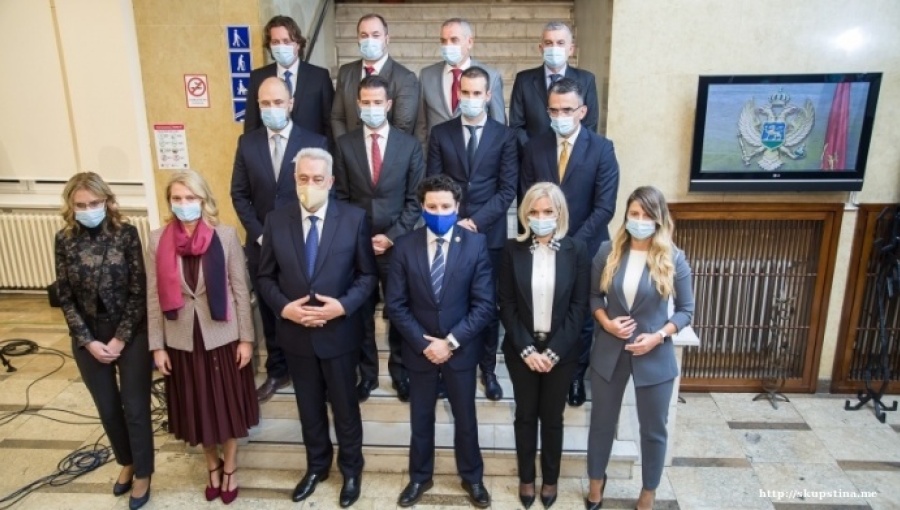
SPOIL SYSTEM AT WORK IN MONTENEGRO
The Krivokapic government issued a decree dismissing high-ranking officials who have made a career under the Democratic Party of Socialists of Montenegro, which has ruled the country for 30 years. The prime minister will distribute offices among the partners of the coalition. “The arrival of a fragmented coalition of small parties to take over governing Montenegro from the DPS, which was deeply entrenched in the state administration after three decades in power, inevitably opened questions as to how effective the new government could be”.
BNE Intellinews, January 13

A CHALLENGING CENSUS IN NORTH MACEDONIA
The Balkan country is expected to conduct general census this year, but the inclusion of emigrants and the still complicated ethnic balance between the Slav majority and the Albanian minority stir disputes over the process.
Osservatorio Balcani e Caucaso, December 23
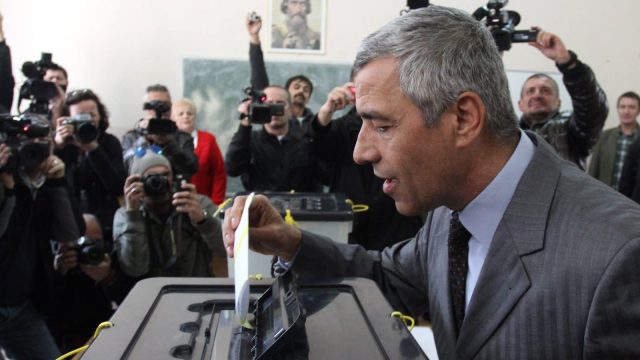
OLIVER IVANOVIC’S ASSASSINATION, STILL NO JUSTICE
Three years after the assassination of Kosovo Serb opposition party leader Oliver Ivanovic in
Mitrovica, the investigation has not delivered any relevant results. The case, plagued by political interference and judicial incompetence, remains unsolved.
Balkan Insight, January 15
Monthly Analysis
THE VACCINE DIVIDE
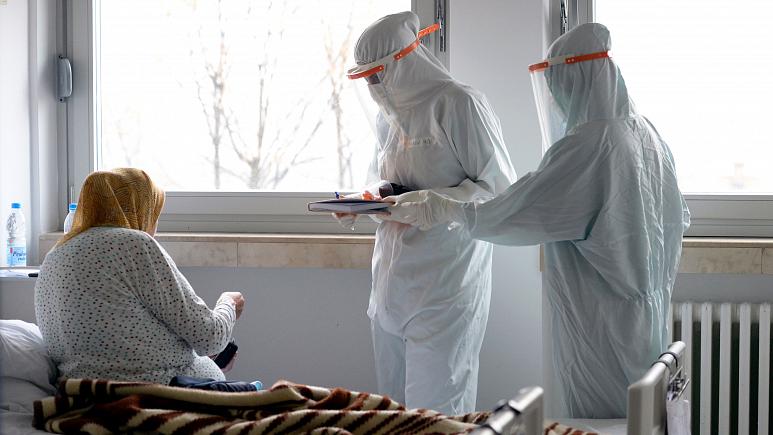
Due to a chronic lack of resources, accessing to Covid-19 vaccines is not an easy game for the Western Balkans. To immunize people, the countries of the region mostly opted for relying on COVAX, a global initiative set up by the EU, the WHO and France to distribute in developing countries vaccines made by European manufacturers.
Under COVAX scheme, doses of the Pfizer-BioNTech vaccines have been shipped to Serbia and Albania, however just in a symbolic amount, while other countries in the region have not yet received the first batch. It is already clear that Albania, Bosnia, Kosovo, Montenegro, North Macedonia and Serbia — home to some 20 million people — will lag far behind the EU’s 27 nations and Britain in efforts to reach herd immunity by quickly vaccinating a large number of their people.
The scarcity of doses has sparked frustration across the region. Politicians point their finger at the EU.
The Albanian Prime Minister, Edi Rama, blamed Brussels for lacking solidarity, saying that its approach to health crisis in the Western Balkans is “morally and politically unacceptable”, implying that the EU has forgotten the region.
However, a note by the EU Commission remarked that 3,3 billion Euro have been mobilized so far to address the health emergency and mitigate the socio-economic impact of the pandemic in the Western Balkans. Moreover, the EU Commission launched in December a loan package, worth 70 million Euro, tailored to speed up vaccinations in the Western Balkans. Yet, the pace is still inadequate.
The vaccine issue is a mirror reflecting the complicated relationship between the UE and it South-eastern neighbours. Brussels is by far the first donor, the first lender and the first trading partner for the region, but the enlargement fatigue, still present across the union, prevents it to upgrade the Europeanization process in the Western Balkans, which also mean relieving the region’s undeveloped economies. For their part, the post-Yugoslav and Albanian political elites criticise in turn the EU’s lack of solidarity (sometimes a legitimate argument), to divert attention from their failures to 6 increase up democratic standards, that are clearly worsening.
The Western Balkans’s efforts to contain the pandemic, for example, is very questionable. During the second-wave pandemic, restrictive measures have been too soft, prompting a surge of infections and deaths. In November, Kosovo was the country with the highest death rate in the world, according to the Johns Hopkins University.
The Western Balkans have realized that the vaccines shortage will not be filled up soon, thus they look for bilateral agreements with manufacturers, not only European ones. Serbia bought doses of Sinopharm and Sputnik V, the Chinese and the Russian vaccines, less effective but cheaper compared to those produced by Western companies. Bosnia Herzegovina, Montenegro and North Macedonia are also due to start negotiations with the two non-EU producers. Belgrade’s authorities also plan to set up centres to produce the Russian vaccine. Generium, the producer of the vaccine, has confirmed its readiness to transfer technology to Serbia.
With the European enlargement stagnating, China and Russia see vaccines as an opportunity to expand influence in the region and achieve strategic goals. For the Asian superpower, the Western Balkans are a fundamental section of the Belt and Road Initiative, one of the most ambitious geopolitical projects in recent years.
As for the Kremlin, the basic objective is watering down the EuroAtlantic integration in the region. Both China and Russia count on vaccines to strengthen their mix of resources to penetrate the region’s porosity. A response from the EU is expected.
The Insight Angle

FLORIAN BIEBER
Director, CSEES (Graz)
“While in most of Europe COVID conspiracies are supported by a quarter to a third of the population, more than 75 percent of WB citizens believe in one or several of six COVID theories. Education, age and gender do not significantly impact these numbers. Instead, there is a geopolitical pattern, where support for conspiracies often aligns with larger feelings about the USA and China”.
This is the summary of The Suspicious Virus: Conspiracies and COVID19 in the Balkans, a survey recently published by Balkans in Europe Policy Advisory Group (BiEPAG), an initiative set up by the European Fund for the Balkans (EFB) and Centre for the Southeast European Studies of the University of Graz (CSEES). We telephoned Florian Bieber, the CSEES Director, to get wider glimpses on this research.
Mr. Bieber, what are the main reasons that make the Western Balkans so vulnerable to conspiracy theories such as China’s engineering of the coronavirus or its link to 5G technologies or even Bill Gates’s plan to implant a tracking chip in people through a vaccine?
The general mistrust in the government contributes a lot to this vulnerability. It means that in periods of crisis people do not necessarily follow what health authorities and political authorities say or suggest. Another factor is the role of public and private media in spreading fake news. Anyway, these are not new trends. We have had several decades of conspiracy theories in the post-Yugoslav sphere, with constant efforts to blame somebody foreign powers as well neighbours – for the deadly wars of the nineties. In such an atmosphere, conspiracy theories related to Covid-19 have grown easily.
How does this affect democracy?
It goes beyond Covid-19 and the health crisis, of course. Most conspiracy theories share the same narrative. People’s belief is that some external actors, who control their democratically elected representatives, take decisions. Thus, people feel powerless and think that their political and civil rights do not matter. They blame “elites”, perceiving them as enemies. All of this undermines democracy.
Do politicians in the Western Balkans exploit conspiracy theories to strengthen their grip on power?
It certainly can happen, but I think that they exploit more the consequence of conspiracy theories, which is the abovementioned mistrust in institutions. It gives them a card to rule in an undemocratic way. When citizens trust an institution, this would not be possible.
The BIEPAG survey highlights that the majority of citizens in the region, Serbs included, are not keen at all to get the jab. Yet, Serbia has rolled out a noticeable vaccination campaign, primarily thanks to the Chinese vaccine, and has clearly taken the leadership in the region. What will prevail at the end? Distrust in vaccines or authorities’ efforts to speed up the vaccination campaign?
Vaccination is interpreted though the issue of conspiracies, but it is also shaped by geopolitical issues. Serbia initially got the European vaccine. Now it has bought massive stocks of the Chinese and Russian vaccines, especially the one manufactured by Beijing. And since people in Serbia feel more inclined to hold a friendly image of China than other groups, as we observed in our survey, ironically the geopolitical issue can scale down scepticisms in the country towards the immunization process.
The BIEPIAG paper underlines that neither better education nor a more reliable media environment is enough to make people abandon conspiracy theories. So, are there any alternative recipes to fight conspiracy theories in the region?
Internet literacy could help clearing the way. People who have the lowest access to Internet are more vulnerable to conspiracy theories. Their main sources of information are tabloids, which often promote such theories. Improving access to Internet and a critical ability to use it would be crucial to define a healthier information environment.

Matteo Tacconi
Journalist and analyst, he covers the Balkans for a wide range of media networks. He worked as electoral observer for the OSCE/ODIHR in Albania, North Macedonia, Russia, Georgia and Ukraine.

